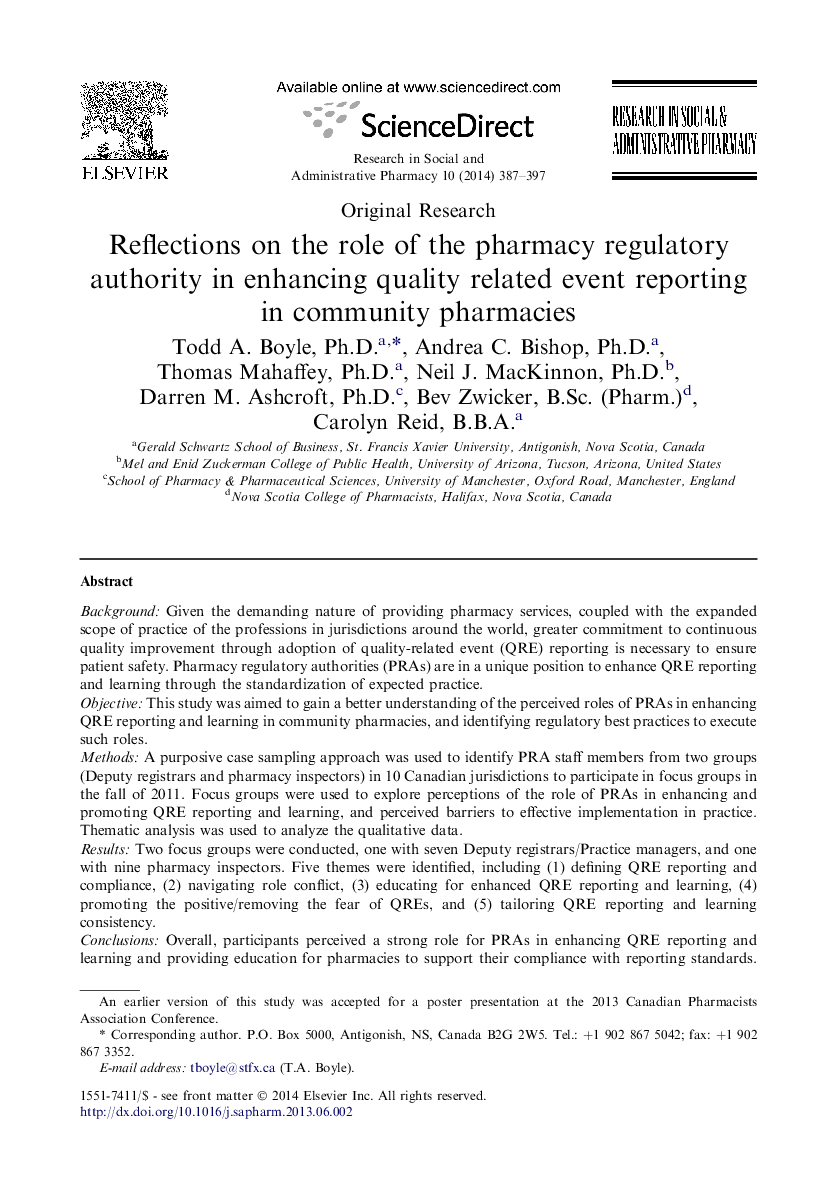| Article ID | Journal | Published Year | Pages | File Type |
|---|---|---|---|---|
| 2508576 | Research in Social and Administrative Pharmacy | 2014 | 11 Pages |
BackgroundGiven the demanding nature of providing pharmacy services, coupled with the expanded scope of practice of the professions in jurisdictions around the world, greater commitment to continuous quality improvement through adoption of quality-related event (QRE) reporting is necessary to ensure patient safety. Pharmacy regulatory authorities (PRAs) are in a unique position to enhance QRE reporting and learning through the standardization of expected practice.ObjectiveThis study was aimed to gain a better understanding of the perceived roles of PRAs in enhancing QRE reporting and learning in community pharmacies, and identifying regulatory best practices to execute such roles.MethodsA purposive case sampling approach was used to identify PRA staff members from two groups (Deputy registrars and pharmacy inspectors) in 10 Canadian jurisdictions to participate in focus groups in the fall of 2011. Focus groups were used to explore perceptions of the role of PRAs in enhancing and promoting QRE reporting and learning, and perceived barriers to effective implementation in practice. Thematic analysis was used to analyze the qualitative data.ResultsTwo focus groups were conducted, one with seven Deputy registrars/Practice managers, and one with nine pharmacy inspectors. Five themes were identified, including (1) defining QRE reporting and compliance, (2) navigating role conflict, (3) educating for enhanced QRE reporting and learning, (4) promoting the positive/removing the fear of QREs, and (5) tailoring QRE reporting and learning consistency.ConclusionsOverall, participants perceived a strong role for PRAs in enhancing QRE reporting and learning and providing education for pharmacies to support their compliance with reporting standards. However, PRAs must navigate the conflict inherent in both educating and promoting a process for achieving a standard while simultaneously inspecting compliance to that standard. Ensuring pharmacies have autonomy in operationalizing standards may help to mitigate this conflict. Finally, greater education for PRAs themselves to better inspect compliance and in order to better communicate the benefits of QRE reporting and learning to pharmacies would be beneficial.
